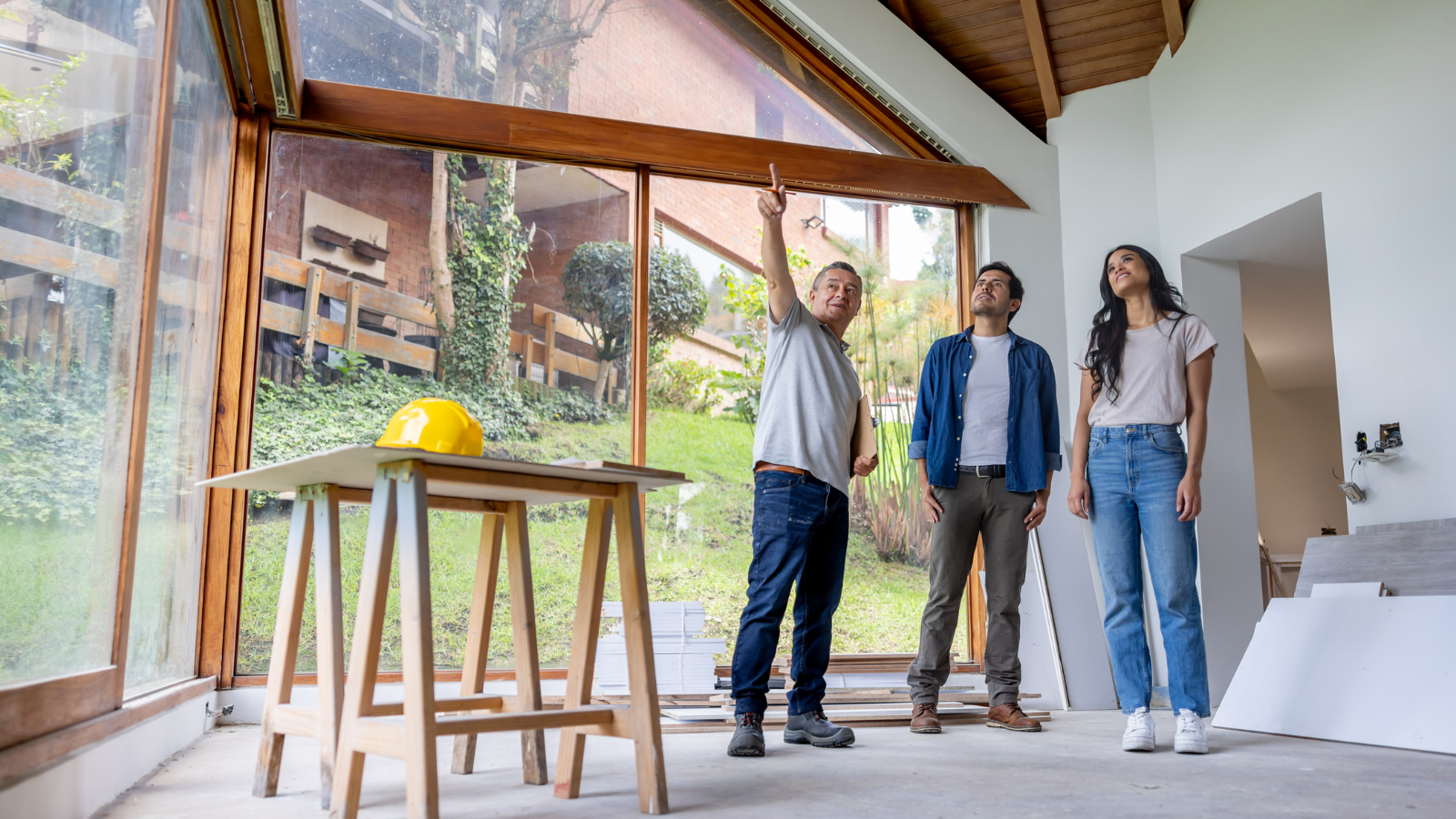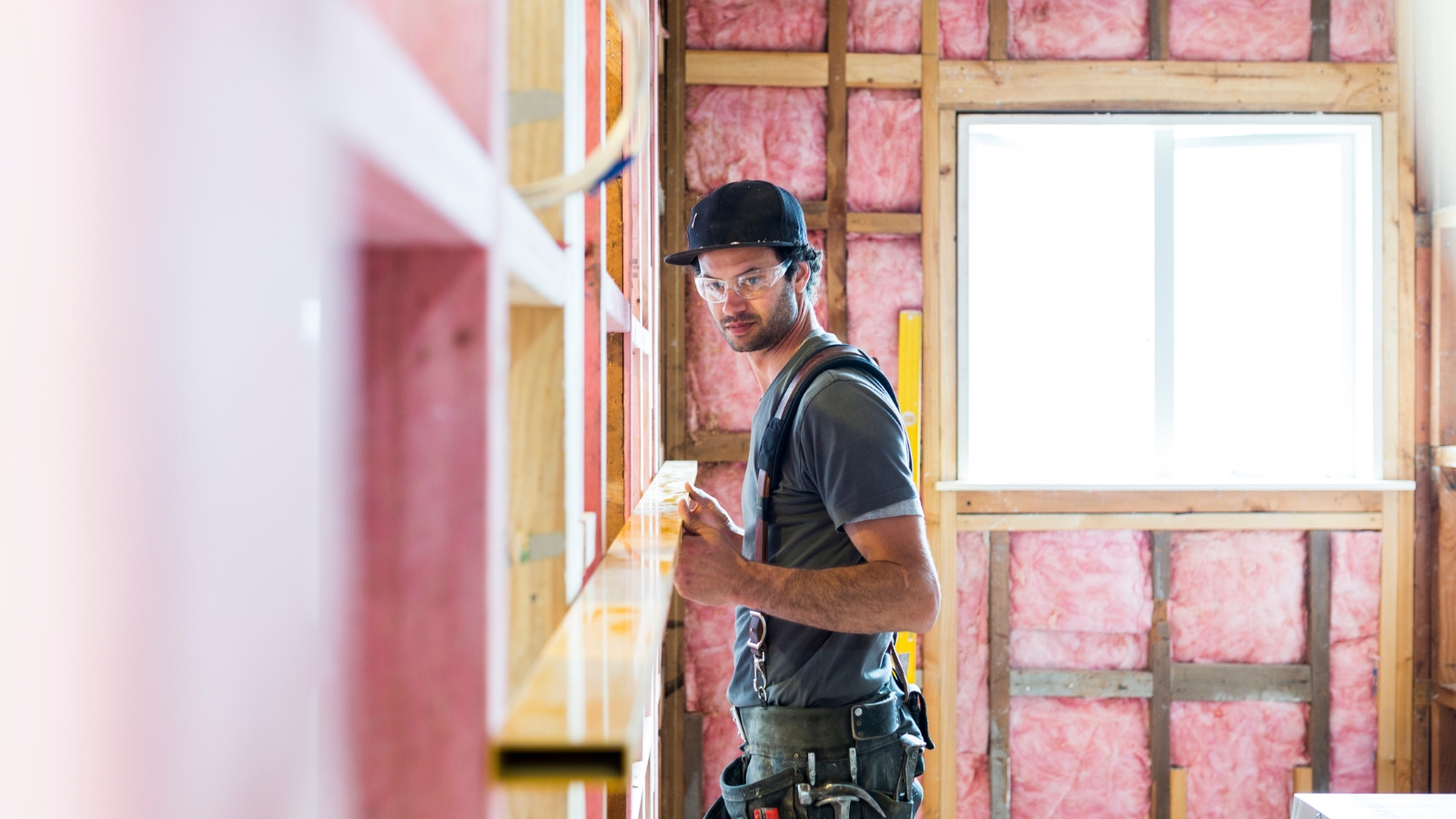Buying guide
House extensions: Everything you need to know
Read this before you break ground
Last updated: 29 October 2024
Need a bit more space? Before selling your property and buying something new, it’s worth considering house extensions first. With that said, extending your home can be expensive and complex – you’ll need to know a thing or two to get it right and keep costs down.
How much does a house extension cost?
Adding a basic bedroom home extension can cost roughly $60,000 to $120,000, but multi-room extensions and double story extensions can cost much more. Anywhere from $120,000 to $400,000+, according to Add Value Renovations.
Rough guide to NZ house extension costs
- Basic bedroom: $50,000 to $100,000+
Multi room extension: $100,000 to $250,000+
Bathroom extensions: $50,000 to 120,000+
Garage extension: $75,000 to $120,00+
Double story extensions: $200,000 to $400,000+
The above figures should only be used as a very rough guide. Your extension could cost much more, or much less depending on the size, materials used, the site and your location.
What affects the cost of house extensions?
Above a certain minimum, you decide how much your house extension will cost. Here are the four main factors that will determine the total amount you spend:
Extent of extensions
Larger, more complex extensions obviously cost more than simple, small additions, and multi-story and multi-room extensions can be extremely expensive. When you extend your home it’s important to make sure you only build what you need.
Materials used
The cladding, internal fixtures, fittings and finishes of your extension can greatly affect its cost. Your contract with your builder may also include variable costs, which can change to cover your choice in materials (or changes in prices). It’s a good idea to choose as many materials as possible before the build starts to provide more cost certainty.
Your site’s conditions
Sloping sites with unstable ground can be much more expensive to build on. If your site needs work it’ll increase the cost of design and building – plus you’ll need to pay for earth works and specialist geotechnical consultants. It’s always best to know the quality of your land early in the process to avoid cost blowouts.
Council consents
If you’re extending your home, you’ll almost always need to apply for council consents and code of compliance. The cost and complexity of these will depend on the type of changes you’re making, but they can add up very quickly (and take months to process). More on this later.
In most cases you'll need to get consent before extending your property.
The NZ house extension process
Rough planning
First thing’s first. Before you make any calls it’s a good idea to have a think about what you really need. Is it a small extra office? A separate bedroom, bathroom and kitchenette for guests and Airbnb? Or a multi-room multi-story extension?
Think about whether your family will grow in future and how much you’re likely to use any extension.
Choosing an architect
Once you have a rough idea of what you want, it’s time to choose an architect. Go for someone local with a good reputation, lots of experience and plenty of positive reviews online (or take a recommendation from a friend). It’s best to go for someone who’s designed similar extensions before if possible.
Initial consultation and feasibility study
Once you’ve chosen an architect, they’ll have a chat to understand what you want, visit your site and present initial design concepts. They should also conduct a brief feasibility study and let you know roughly how much your extension may cost.
Feasibility will include checking with local council rules to see if you can build what you want.
Finance
As soon as you have a rough idea of what your house extension will cost it’s a good idea to secure finance. Most Kiwi who build house extensions in NZ pay for them by extending their home loan. If you’ve got equity in your home you may be able to do this too – speak to a mortgage broker to find out more.
When financing it’s always a good idea to get 10-15% more than you think you may need, to cover cost blowouts.
Development of house extension design and submission with council
Next, your architect will develop a final draft of your house extension design with your feedback in mind and submit this with your local council for initial building consent. You’ll have to wait for approval from the council before you can start building.
The final design should include specification of materials, finishes, layouts, fixtures and fittings. At this stage, it's important to communicate openly with your architect to make any changes early, before plans are submitted to council for approval.
Choosing a builder
As always, check reviews before choosing a builder or renovation company and feel free to speak to several to find one you like. You’ve got two options here – you can either:
Manage the build and all contractors yourself or,
Hire a builder or project manager who will manage the entire project for you.
You may be able to save costs and have more oversight with option one, but it’ll require lots of work and coordination. Most people are better off hiring a project manager or renovation company to do the work for them.
Get quotes and finalise costs
Once you’ve spoken to a few builders and/or renovation companies, it’s time to get down to brass tacks. It’s a good idea to get a few quotes for the work to make sure you’re not overpaying.
Keep a close eye on variable or PC sums in the quote. These are prices that aren’t fixed, which means they can change down the track and add significantly to your project's cost. It’s always a good idea to minimise these if possible.
It's a good idea to get a clear idea of costs before you start a project
Signing a contract
Once you’ve vetted a few construction companies and gotten quotes, it's time to choose your favourite. At this stage the builder or building company should produce a detailed contract including the project’s scope, timelines, payment terms and a method for dispute resolution.
It’s a good idea to have a lawyer review this contract to make sure you fully understand the terms.
Construction
And finally, after what may be months of planning, your builder should be ready to get cracking. Generally your extension will be built using the following rough process:
- Foundations laid.
- Framing up
- Roof and windows added
- Insulation and cladding added and the home is sealed from the elements.
- Electrical, bathrooms, plumbing, tiling and other interior fixtures installed.
- Final touches.
You’ll usually make progressive payments at certain stages of the process after your builder invoices you. A council inspector will also regularly visit the property to make sure its being built according to consented plans.
Handover
Woohoo – job done! As soon as construction is complete, your builder will formally hand it over to you and provide keys. You’ll get a chance to formally inspect their workmanship and they’ll provide paperwork, including warranties and manuals for any appliances or systems in the home.
Remember the ‘defect’ period – the time during which your builder will remedy any errors in the build (and don’t be shy to contact them and ask if anything goes wrong).
Application for code compliance certificate (CCC)
Last but not least, it’s time to apply for a code of compliance certificate or CCC. This is essentially a bit of paper from your local council that confirms the work completed meets the requirements of the building consent and the plans that were originally submitted.
Your builder or architect will usually apply for this for you or help you apply, and once you’ve got it – voilà – your house extension is officially finished.
If you can do some work yourself you could save thousands of daollrs.
Hot tips for building an extension
The contract is key
Your home extension’s true foundations aren’t in the ground, they’re in the contract that you sign with your building company. So make sure you’ve got essential details included, such as the build timeline, materials, costs and what happens if the project runs behind schedule. Before you sign anything, get a lawyer with experience in building contracts to review.
Think about your neighbours
It's common courtesy to let your neighbours know to expect construction noise before starting extensions, and in some cases your consent may even require that you notify them (or in some cases get their permission). Let them know what to expect, how long the construction will go on, and provide your contact details in case they need to get in touch or ask questions.
Prioritise consents
Every year, hundreds of renovations and extensions are held up because of council consent. Don’t make the same mistake. Speak to your architect and/or building company about applying for the relevant consents early, and make sure you know exactly what’s required to avoid costly delays.
Demand cost and timeline certainty but plan for blow outs
A solid contract can spell out costs and timelines clearly so that your building company has clear goals to work to. With that said, most projects do tend to take longer and cost more than initially intended. Don’t let this catch you by surprise – leave space in your plans for extra costs of at least 15% and later completion.
Build for the future
Chances are you’re building this extension to future-proof your home, so it’s worth thinking about what you’ll need 5, 10 and even 20 years down the track. With this in mind, it’s a great idea to always use quality materials and insulate above building code, if you live in a cold climate. Make sure you’ll have enough space, as building enough now will be cheaper and easier than extending again down the track.
DISCLAIMER: The information contained in this article is general in nature. While facts have been checked, the article does not constitute an advice service. The article is only intended to provide general information about house extensions in NZ. Nothing in this article constitutes a recommendation or any specific advice for any person. We cannot assess anything about your personal circumstances, your finances, or your goals and objectives, all of which are unique to you. Before making decisions about your house extension, we highly recommend you seek professional advice.
Author
Other articles you might like










